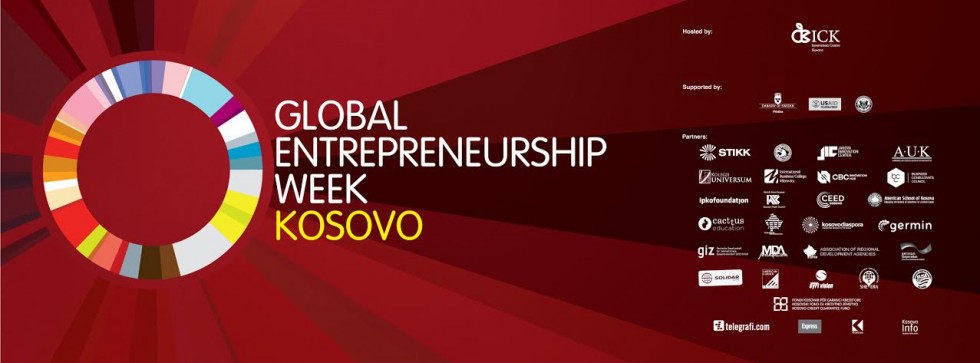
From start-up to scale-up – The Do’s and Don’ts
By: Hana Halilaj November 30, 2016
The fourth Global Entrepreneurship Week (GEW) Kosovo 2016, organized by Innovation Center Kosovo (ICK), was held from 14 to 20 November. Germin organized a Google Hangout within the GEW with Indira Kartallozi and Ruzhdi Morina moderated by Liza Gashi, programme director of Germin.These Google Hangouts to generate dialogue and promote reflection on important issues among the diaspora community.
Based in Cambridge, UK, Kartallozi is the founder and director of Chrysalis Family Futures – a social enterprise that stands for protection and empowerment of human and socio-economic rights of vulnerable and marginalised families and children. She is also the founder of the Migrant Entrepreneurs Network, an organization that connects migrant entrepreneurs and promotes their role in global economic and social development. Kartallozi states that she finds support in people who are visionaries, as they are people with good intentions who aim to enhance development, by not being part of any initiative that would impair the state.
Ruzhdi Morina, a graduate student of Business Administration in Austria, is currently working on his thesis “A business model based in democratic principles”. The purpose of his research is not just focused on stable enterprises, but it also aims to show that opening a business is not easy. The most developed states invest in enterprises and start-up businesses, because they are a strong feature for economic development and generate new working places.
Kartallozi’s advice to the young enthusiasts wanting to start a business is to be patient. Initially, it requires lots of energy and time and the results are seen later. As for starting a successful enterprise in Kosovo, she states that the key is good teamwork. Above all, Kartallozi believes that it is crucial to think about what that start-up will bring to the society. On the other hand, Morina points out to the importance of collectivity and individuality, transparency, free ideas, invitation, collaboration, the right of free choice, and love and spirituality. According to him, they help build a solid enterprise that will develop and be a space where each member feels like a part of the team and, thus, is motivated to work.










